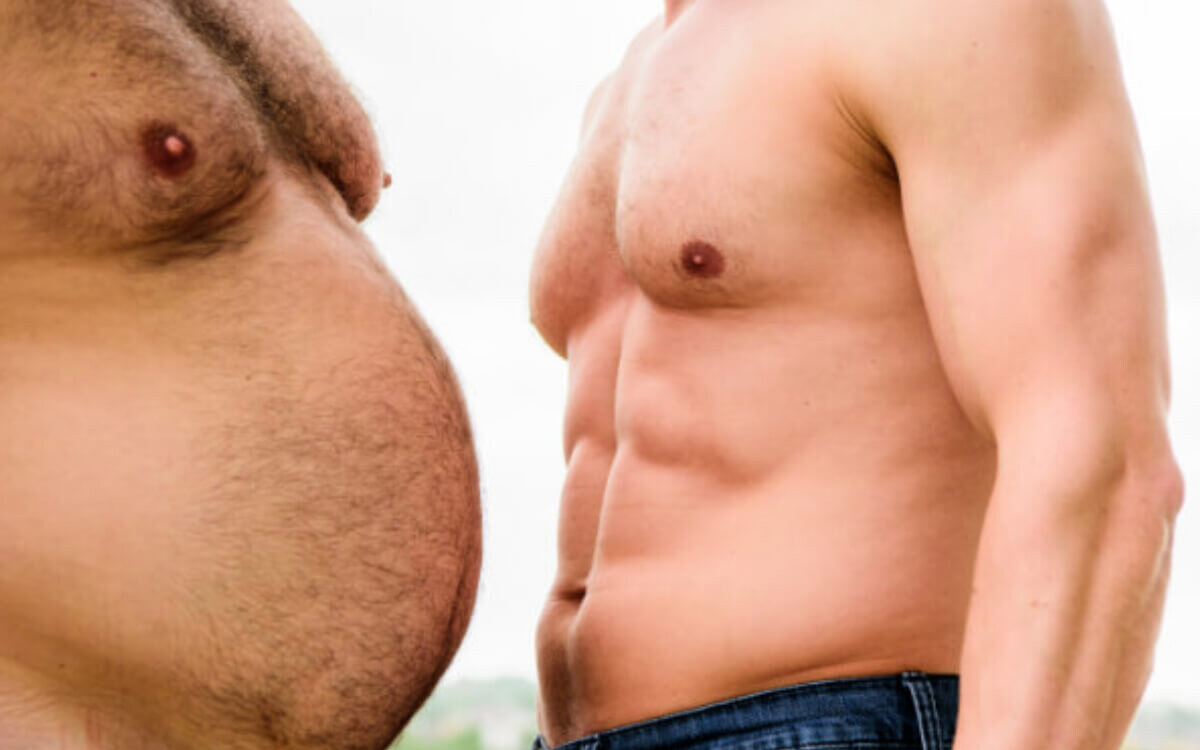No question: the internet is the mirror of society. Most of us probably use dating apps like Grindr, Scruff, Hornet, Romeo and co. today to make contact with other gays, for hook-ups or even to find the love of our lives. What is unfortunately a reality is often encountered on many profiles. Besides exclusion, body cult, ignorance, lookism, hate, racism, ageism and disableism, we want to point out another problematic word in getting to know strangers and give a better way to deal with it. The keyword is: Bodyshaming!
Bodyshaming among gays
This refers to discrimination or demeaning of people based solely on their appearance – i.e. their body –. To find this in the queer, gay milieu, of all places, actually sounds absurd. Since gay men often have experiences of exclusion or discrimination. And so one reads in numerous profiles statements like “No Fats, no Fems, no Beards!”. Clearly structured statements that are a slap in the face for many men. So how does it come about? And what is a healthy way to deal with it?
Bodyshaming in dating apps
Dating apps reduce individuals to measurable attributes, prioritizing physical appearance in the search for potential dates. The emphasis is on meeting specific demands and finding a fit based on personal preferences. This one-dimensional mindset evaluates others solely based on what they can offer and how well they align with expectations.
There is nothing wrong with this superficiality, the scanning of all the information and offers. For it is considered immensely important to orient oneself in the ever-increasing flood, to position oneself and sort out what one wants or doesn’t want. No matter whether it’s an ice cream parlour, a supermarket, a cinema or a date.
In the gay dating scene, superficiality can make it difficult to find genuine connections and relationships. Many people seek contact and connection but often settle for quick sex. Filter functions are used to find desired partners solely based on superficial criteria. However, this approach hinders the development of real feelings, intimacy, and relationships beyond a physical level. There is a sense of numbness in navigating through countless images to optimize limited free time. There is little willingness to engage with unwanted connections or people who don’t meet desired expectations.
But when is a statement in the profile text, a filtering of others, and statements in the first chat a sharing of precisely these preferences and predilections – and when is it bodyshaming?
Gay Struggles
Even academia is grappling with this explicit gay cult to find out where it comes from. It is immediately obvious that the pressure to be especially trained and beautiful plays a big role. And in some dating profiles you can find statements like no fats, no femmes, no asians. Not only racist, but clear body-shaming.
The pressure to conform to a specific body ideal in the gay community is strong. Media, gay events, and queer pop culture often celebrate a specific image of attractiveness and masculinity. This can make those who don’t fit into this mold feel out of place and ostracized. The limited representation of diverse body types and the emphasis on certain categories further reinforce this narrow standard. Those who do conform may feel a sense of belonging, while others struggle to meet these expectations.
A study by Olivia Foster-Gimbel and Renee Engeln (2016) found an anti-fat bias in the gay scene. Gay men perceive men as overweight, even when they appear to be of normal weight to straight men. Another study compared the responses of gay men to those of straight men and found that slightly overweight men were more likely to be ignored or insulted in a gay bar than in a predominantly heterosexual bar. A 2007 interview study by Columbia University also revealed disturbing insights into the diagnosis of eating disorders among straight and gay individuals.
The reason is obvious. In order to conform to the ideal image, or at least to approach it, the gym and an optimized diet are the order of the day for many gay men. The urge for self-optimisation that can be felt throughout the community is clear. Work on yourself, on your diet, on your body. Only then can you be successful, be loved and desired.
Avoid body-shaming: Living preferences without hurting!
Doing something for your own health and fitness is never wrong. But if it is only for others and their approval and recognition and not for yourself, you should give up thinking about it. A few kilos more or less do not determine happiness in a relationship! Because looks do not define who we are, and there is no one way to live. Or the one way to be a supposedly real, gay man.
Whether too fat, too thin, particularly male or female, whether gay or straight. Judgements about this are much more likely to divide than to help us get together. No, compulsively dating someone who doesn’t appeal to us doesn’t mean that. And judging men in the first moment by their looks is a human prerogative. What needs to change, however, is the discrimination and exclusion faced by men who do not conform to the and/or our ideal. But recognising and rethinking the patterns in dating, from the gay tribes and body types, is a good start
It is important, especially in the queer community, to treat each other with respect, love and sensitivity. With all the discrimination that many of us have experienced ourselves, we should know better. Whoever experiences body-shaming and feels safe expressing this should say something like: “That was unkind”. This can be a good start against body-shaming.
Dating apps are a cool way to get in touch with each other within the gay scene. But with body-shaming, exclusion and hatred, it becomes a toxic pool in which no one wants to swim any more.
|
